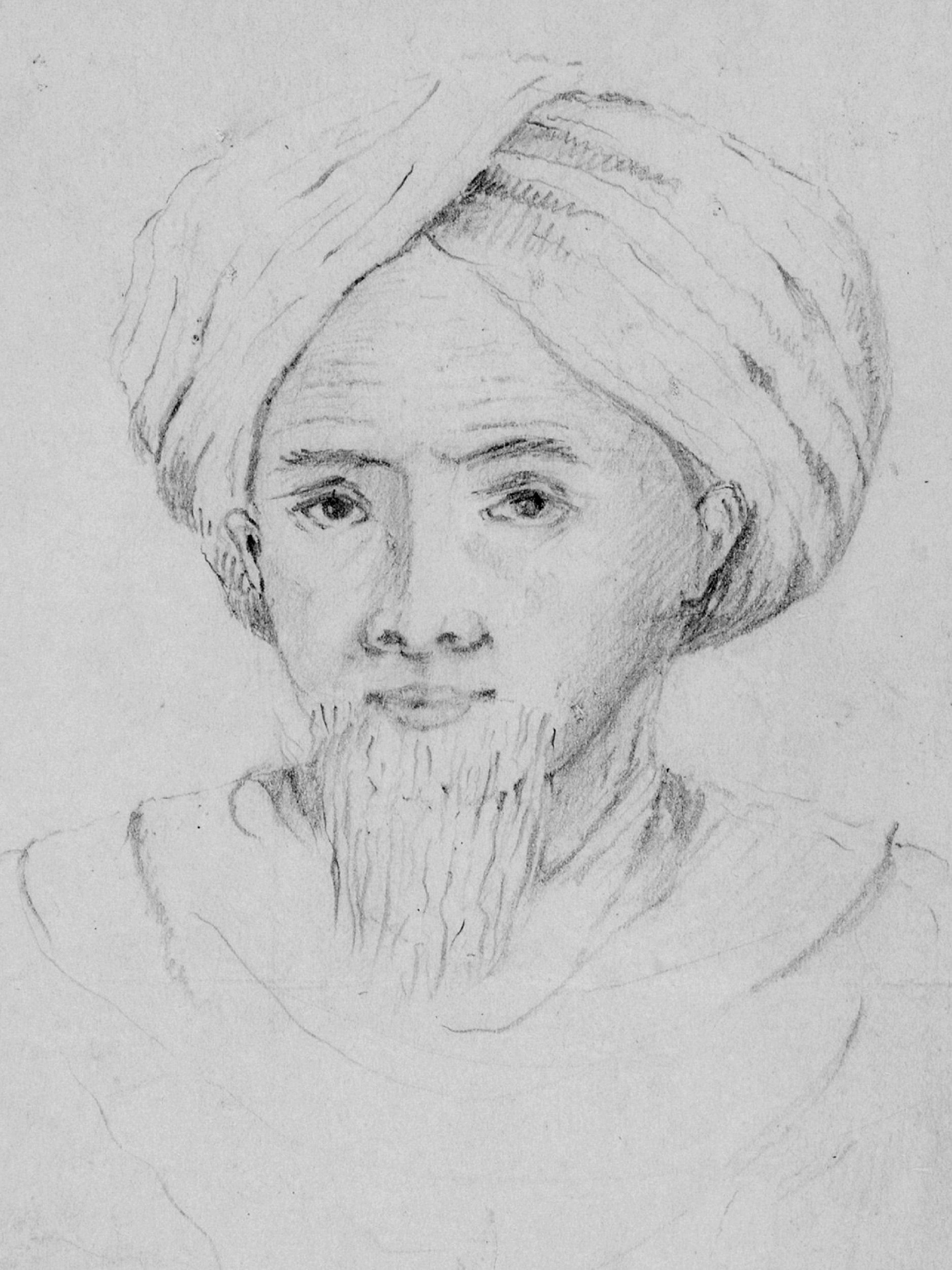Tuanku Imam Bonjol, born as Muhammad Shahab (1772-1864), was a prominent Indonesian national hero and a leader in the resistance against Dutch colonial rule in the 19th century. He is revered for his bravery, strategic leadership, and commitment to defending the independence of the Minangkabau people of West Sumatra, Indonesia.
Imam Bonjol was born into a noble family in Bonjol, West Sumatra, which was part of the Minangkabau Kingdom at that time. He received a traditional Islamic education and became a skilled scholar, acquiring knowledge of Islamic law and theology. He also developed a deep sense of justice and a strong belief in the importance of self-defense.
Imam Bonjol's leadership emerged during the turbulent period when the Dutch East India Company (VOC) was expanding its control over the Indonesian archipelago. The VOC had established a colonial presence in West Sumatra, and their oppressive policies, including high taxes and forced labor, sparked widespread discontent among the local population.
In 1803, Imam Bonjol joined forces with other local leaders to resist Dutch rule. He organized a resistance movement known as the Padri movement, which aimed to defend the indigenous Minangkabau culture, uphold Islamic teachings, and fight against Dutch oppression. The movement gained significant support from the local population, including religious scholars, traders, and warriors.
Imam Bonjol's military tactics were characterized by guerilla warfare, hit-and-run attacks, and the effective use of fortifications. Despite facing a well-equipped and superior Dutch military force, he successfully defended the fortress of Bonjol for several years, becoming a symbol of resistance against colonialism.
The Dutch launched multiple military campaigns to suppress the resistance, but Imam Bonjol's leadership and the resilience of his followers posed a formidable challenge. The most significant confrontation was the Siege of Bonjol, which lasted from 1824 to 1837. The siege involved intense fighting, with the Dutch attempting to breach the fortress defenses while the defenders resisted valiantly.
Ultimately, in 1837, Imam Bonjol and his forces were overwhelmed, and Bonjol fell to the Dutch. Despite being captured and exiled, Imam Bonjol continued to inspire resistance against Dutch rule through his writings and correspondence. His unwavering spirit and refusal to surrender made him a legendary figure in Indonesian history.
Imam Bonjol's struggle and resistance against colonialism left a lasting impact on the Indonesian independence movement. He became a symbol of national pride and the spirit of resistance, with his legacy inspiring subsequent generations in their fight for independence.
Today, Imam Bonjol is revered as a national hero in Indonesia. His name is commemorated in various ways, including a major road named after him in Jakarta, and his statue stands proudly in the city of Padang, West Sumatra. His story continues to be taught in Indonesian schools, serving as a reminder of the importance of freedom, justice, and the pursuit of independence.
After the fall of Bonjol, Imam Bonjol and some of his followers were exiled to the island of Ambon, where they lived under strict surveillance by the Dutch colonial government. During his exile, Imam Bonjol continued to communicate with independence fighters throughout Indonesia, providing moral support and strategic advice.
Imam Bonjol's influence extended beyond his physical presence. His ideas and teachings continued to inspire and motivate the resistance movement against Dutch colonialism. His writings and correspondence emphasized the importance of unity, perseverance, and the preservation of Indonesian cultural and religious values.
In 1859, after spending over two decades in exile, Imam Bonjol was allowed to return to West Sumatra. Although he was no longer directly involved in active resistance, he remained a respected figure and an advocate for the rights of the Minangkabau people.
Imam Bonjol passed away on November 6, 1864, in the village of Maninjau, West Sumatra. His death marked the end of an era, but his legacy lived on. He was posthumously recognized as a national hero by the Indonesian government, and his contributions to the struggle for independence were widely acknowledged.
Imam Bonjol's story continues to be celebrated and honored in Indonesia. His courage, determination, and unwavering commitment to the fight against colonialism serve as an inspiration to future generations. His name is synonymous with the spirit of resistance and the pursuit of freedom, making him an enduring symbol of Indonesia's struggle for independence.




